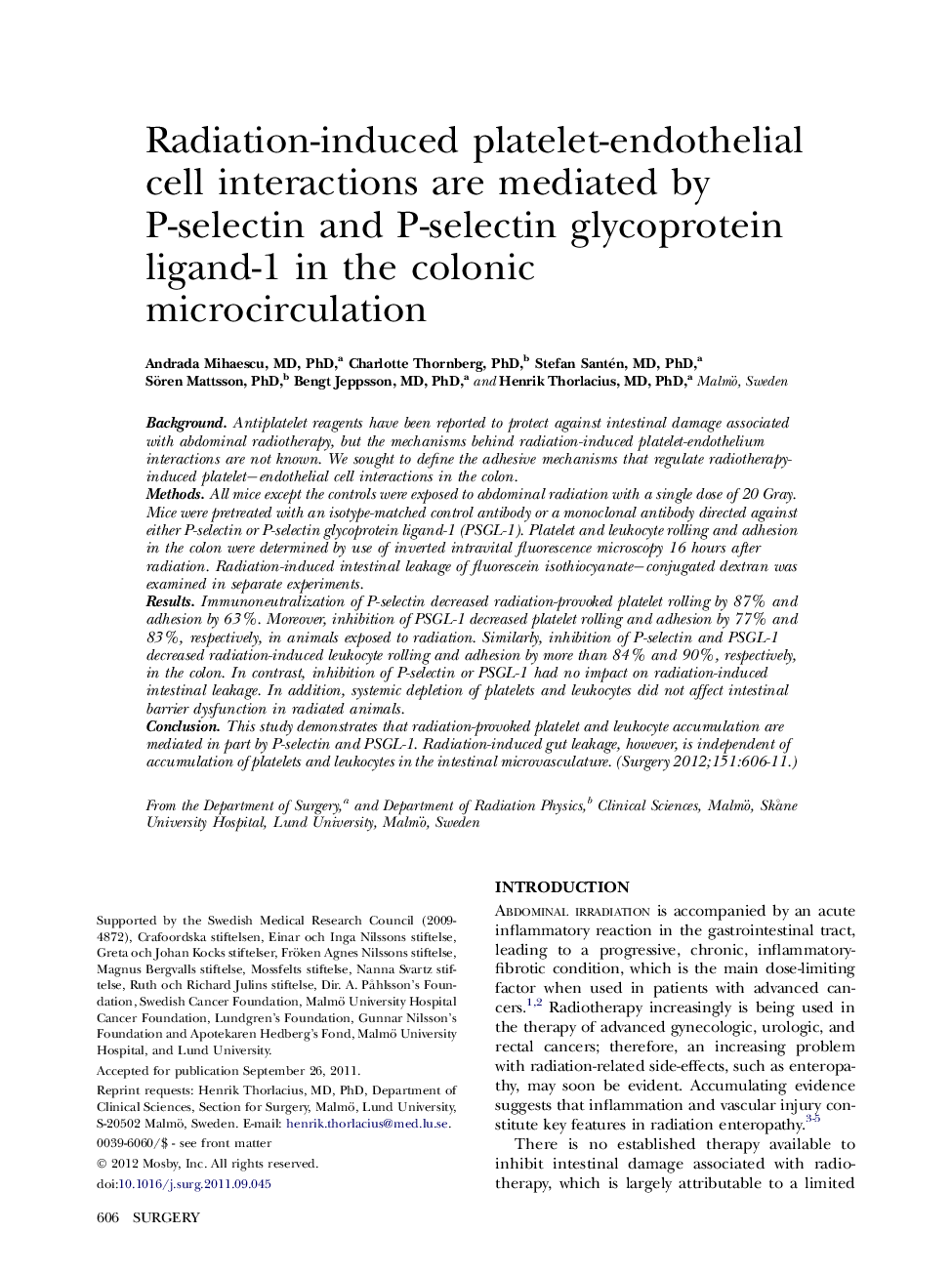| Article ID | Journal | Published Year | Pages | File Type |
|---|---|---|---|---|
| 4308093 | Surgery | 2012 | 6 Pages |
BackgroundAntiplatelet reagents have been reported to protect against intestinal damage associated with abdominal radiotherapy, but the mechanisms behind radiation-induced platelet-endothelium interactions are not known. We sought to define the adhesive mechanisms that regulate radiotherapy-induced platelet−endothelial cell interactions in the colon.MethodsAll mice except the controls were exposed to abdominal radiation with a single dose of 20 Gray. Mice were pretreated with an isotype-matched control antibody or a monoclonal antibody directed against either P-selectin or P-selectin glycoprotein ligand-1 (PSGL-1). Platelet and leukocyte rolling and adhesion in the colon were determined by use of inverted intravital fluorescence microscopy 16 hours after radiation. Radiation-induced intestinal leakage of fluorescein isothiocyanate−conjugated dextran was examined in separate experiments.ResultsImmunoneutralization of P-selectin decreased radiation-provoked platelet rolling by 87% and adhesion by 63%. Moreover, inhibition of PSGL-1 decreased platelet rolling and adhesion by 77% and 83%, respectively, in animals exposed to radiation. Similarly, inhibition of P-selectin and PSGL-1 decreased radiation-induced leukocyte rolling and adhesion by more than 84% and 90%, respectively, in the colon. In contrast, inhibition of P-selectin or PSGL-1 had no impact on radiation-induced intestinal leakage. In addition, systemic depletion of platelets and leukocytes did not affect intestinal barrier dysfunction in radiated animals.ConclusionThis study demonstrates that radiation-provoked platelet and leukocyte accumulation are mediated in part by P-selectin and PSGL-1. Radiation-induced gut leakage, however, is independent of accumulation of platelets and leukocytes in the intestinal microvasculature.
